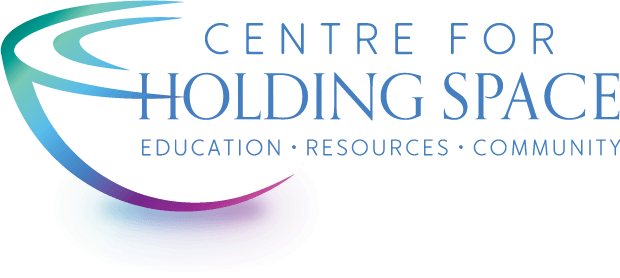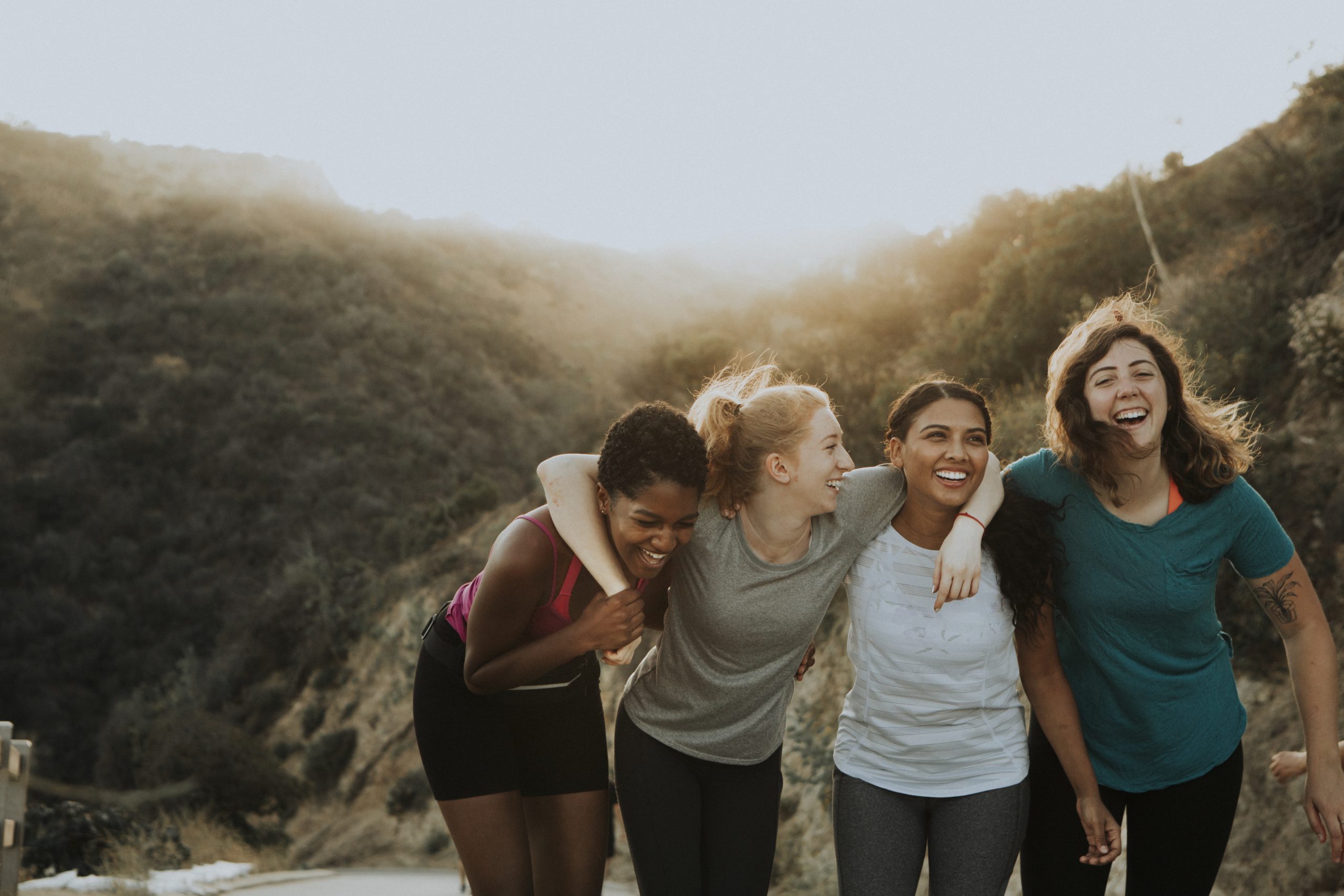Back when I first committed myself to diving deeper into this work of holding space, after I’d wrestled through the initial resistance and overwhelm that came when my blog post went viral and my inbox was suddenly flooded with requests for me to teach about a concept I wasn’t sure I fully understood myself, I started building the first version of what is now the Holding Space Foundation Program. I didn’t yet know what it would be, I didn’t know that I’d eventually publish a book about it or open a Centre for Holding Space, but I knew that I could no longer turn away from the nudging of what felt as close to a calling as anything I’d ever experienced before.
It took about two years after the viral blog post before the new program was ready to launch. In those two years, my life changed dramatically, partly because I knew I couldn’t teach this work unless I was more intentionally living what I taught. As I’ve shared before, the post going viral was one of the catalysts for my marriage ending. Once I started to talk to more people about what it meant to hold space and how it was an integral part of healthy relationships, I became painfully aware that it didn’t exist in my own primary relationship. My former husband and I were so stuck in unhealthy patterns of communication that neither of us knew how to hold space for the other. In March the post went viral and in June, I asked him to move out of the house. A formal separation and divorce followed soon after.
I don’t think I could have built this work if I hadn’t made the choices I made in the early days. I needed to liberate myself from the unhealthy patterns of my marriage before I could truly understand what holding space was.
One day, as I was nearing the end of the creation of that first online program, I had a sudden lightbulb moment. Holding space is about liberation. That’s the whole point! It’s about liberating ourselves and liberating others so that we can co-create liberatory relationships and liberatory communities. It’s about not clinging too tightly, not being too attached to the outcome, not trying to change people, not oppressing or controlling people, and not imposing our will on other people. It’s also about liberating ourselves and standing up to the kind of behaviour that is not liberatory – behaviour that oppresses, controls, diminishes, shames, and causes harm.
Holding space is about creating mutual sovereignty, so that all of us have the right to make choices on behalf of our own bodies, hearts, minds, and resources.
After having that first a-ha moment, I continued to dive more deeply into what it meant to be in liberatory relationships where all involved respect each other’s sovereignty. I realized, just as I had when I ended my marriage, that I wouldn’t be able to fully understand liberation unless I found more liberation for myself.
My divorce was the first act of liberation that opened the door for many others to follow. I began to deconstruct any beliefs or stories that felt like they were keeping me trapped – beliefs around what I could and couldn’t do with my own body; beliefs around who had value and who didn’t have value; beliefs around gender, sexuality, race, etc.; beliefs about God, heaven and hell; beliefs about money and success, etc., etc. Once I started to deconstruct, I tried to hold onto no sacred cows. I let myself explore what it would be like to let everything go and start from scratch – start with trusting in my own heart, body, and mind.
I couldn’t deconstruct those beliefs, though, unless I also unpacked the trauma attached to them – trauma that made my body go into fight/flight/freeze/fawn when I considered releasing the belief. I learned about abandonment trauma, religious trauma syndrome, financial trauma, generational trauma, and the unique kind of trauma that comes from sharing one’s life with a person with a personality disorder. I visited therapists and tried various somatic healing practices. I had endless conversations and read endless books.
Gradually, I chipped away at my beliefs, my trauma, and my social conditioning. None of it magically disappeared, but with time and effort, there was much healing and much release.
Somewhere along the line I realized that tenderness was essential for liberation. It was only by being tender with myself and accepting tenderness from others that I could set myself free. I had to be tender when my trauma got triggered, tender when loved ones pushed back on my choices, tender with the scared little child in me who was afraid she’d be abandoned if she didn’t obey the rules, tender when I was filled with self-doubt, and tender when the emotions threatened to overwhelm me.
Because I didn’t have a lot of practice being tender with myself (or a lot of people modelling it for me), and couldn’t muster the strength for it in my most wobbly moments, I started to imagine Tenderness as a being outside of myself – someone I could trust to be tender with me even when I was too busy beating myself up. I started writing letters to myself, imagining they’d been penned by Tenderness. Out of that, The House that Tenderness Built was born.
And now, a couple of years later, I am on the next leg of this journey. For one thing, I’ve nearly completed my next book which is all about my personal quest for more liberation and tenderness. And for another thing, I have lightened my load to explore more about what liberation truly means for me. After helping to launch my adult children into their own lives, I sold my house, got rid my furniture, packed my personal belongings into storage, and set off on an adventure, starting in Europe (where I currently am), with the intention to continue until I find a place that my body, heart and mind feel at home, safe, and free.
I’m calling this my Liberation and Tenderness Tour (you can follow along on Facebook or Instagram with the hashtag #liberationandtendernesstour) and I am intentionally making choices with those two themes in mind. I’m choosing where to go, who to spend time with, what work to do, and how long to spend in one place based on whether the choice feels tender and/or liberating. Yes, I still have work to do as I travel (sadly, I am not independently wealthy), but most of my work can be done from a comfortable chair overlooking a beach (as I’m doing right now).
As I wrote about in my blog on my personal website (where I wrote about cultivating a lifestyle of joy), this is not about hedonism, but about more deeply understanding what life can be like when I liberate myself from some of the expectations that society places on me, when I stop evaluating myself based on the metrics imposed by patriarchy and capitalism, when I work to divest myself of systems that oppress and control, and when I make choices out of love and tenderness and not just out of duty.
I’m sharing this with you this for a few reasons. For one thing, I’d be delighted if you’d join me virtually on this journey. I’ll be sharing some of my learnings here and on social media. I hope that my own Liberation and Tenderness Tour encourages you to seek more liberation and tenderness for yourself.
For another thing, I wanted to draw the connection between the holding space work and what I’m doing now, to help you find your own path to more liberation. I don’t think I could be where I am now without first deeply exploring the concept of holding space. I believe that by understanding the concepts that we teach about in the Holding Space Foundation Program and that I wrote about in The Art of Holding Space: A practice of love, liberation and leadership, that you, too, could discover more liberation and tenderness in your life. And I want that for you.
This is a good life. I tell you that not out of any superiority, but out of a genuine desire for others to find their way toward more liberation, tenderness and joy.
You don’t need to pack all of your belongings into storage, as I did, to set out on this quest. You just need to do the next right thing for you and see where that takes you next. And if that next right thing includes joining us for the Holding Space Foundation Program, or attending one of my upcoming in-person workshops (including a retreat that is specifically focused on liberation and tenderness), then I will be delighted to be on that journey with you.

